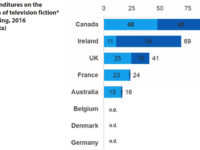The big headline story from the first week of the CRTC hearing into the wireless market was undoubtedly Telus CEO Darren Entwistle closing hours of testimony with a threat to slash investment and jobs if the Commission follows through with a mandated MVNO model. Entwistle told the CRTC:
There’s been a lot of conjecture related to disinvestment or reduced investment. It’s been a high topic related to what will happen as it pertains to MVNOs being introduced or another 25 percent price reduction being enforced, having already bettered the existing one that’s in place. And there are some views that this is just theatre perpetrated by the incumbents, in that if mandated MVNOs come to fruition or there’s an enforced second tier 25 percent reduction we will go on with status quo investing.
So one of the additional things I would like to file with you in confidence that I brought here today is a Board resolution at TELUS signed by all of our Board directors instructing management to pursue an investment reduction plan and a job reduction plan and a philanthropic giving reduction plan should these eventualities present themselves. And we’re discussing numbers where the reduction, and we’ll go public with it, but I’ll file with you the Board resolution, in the vicinity of a billion dollars of reduced investment over the next 5‑year. The reduced employment is in the zip code of 5,000 jobs over the next 5‑years.
In other words, in a bid to demonstrate that this was not theatre, Entwistle engaged in theatrics by pointing to a resolution from a board of which he is a member that supports his case.











